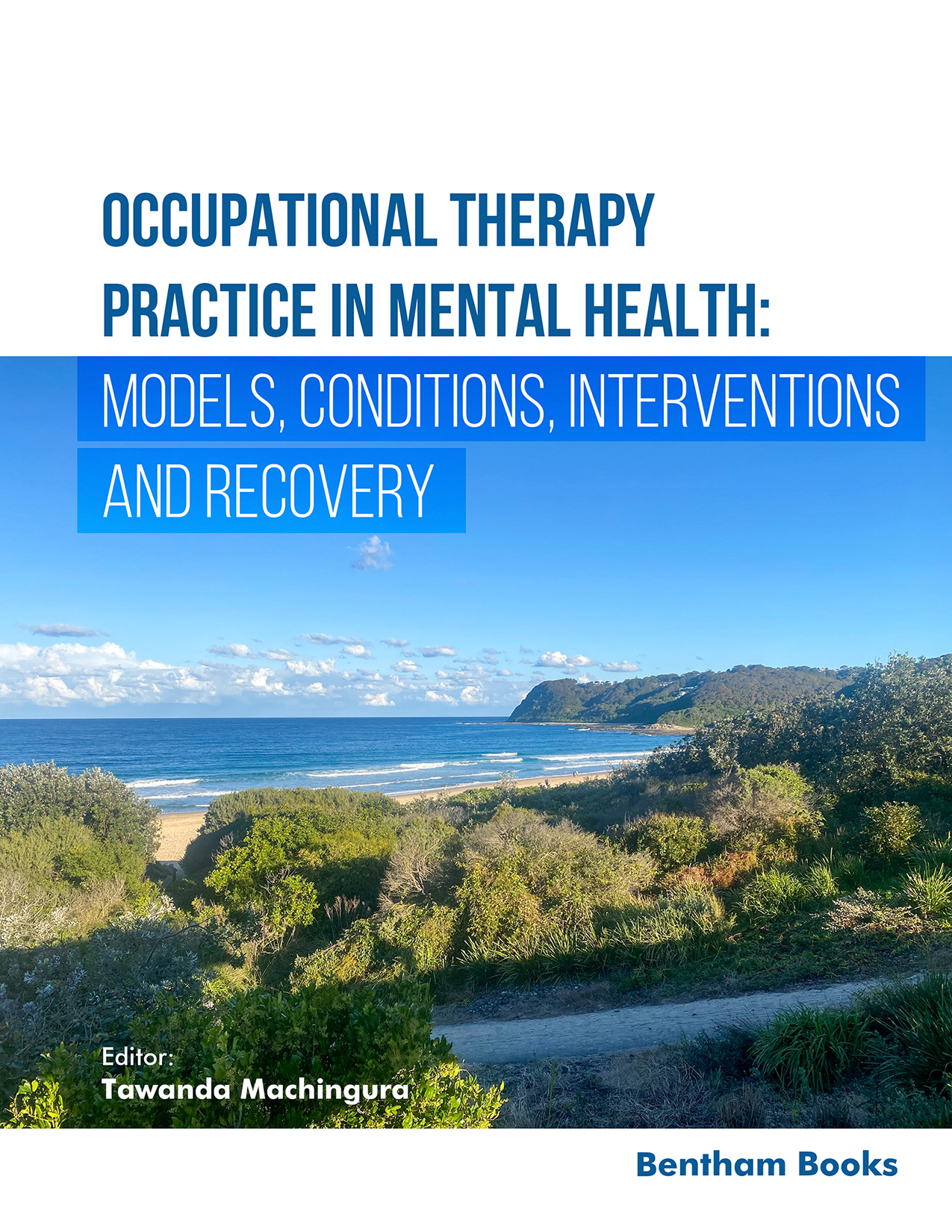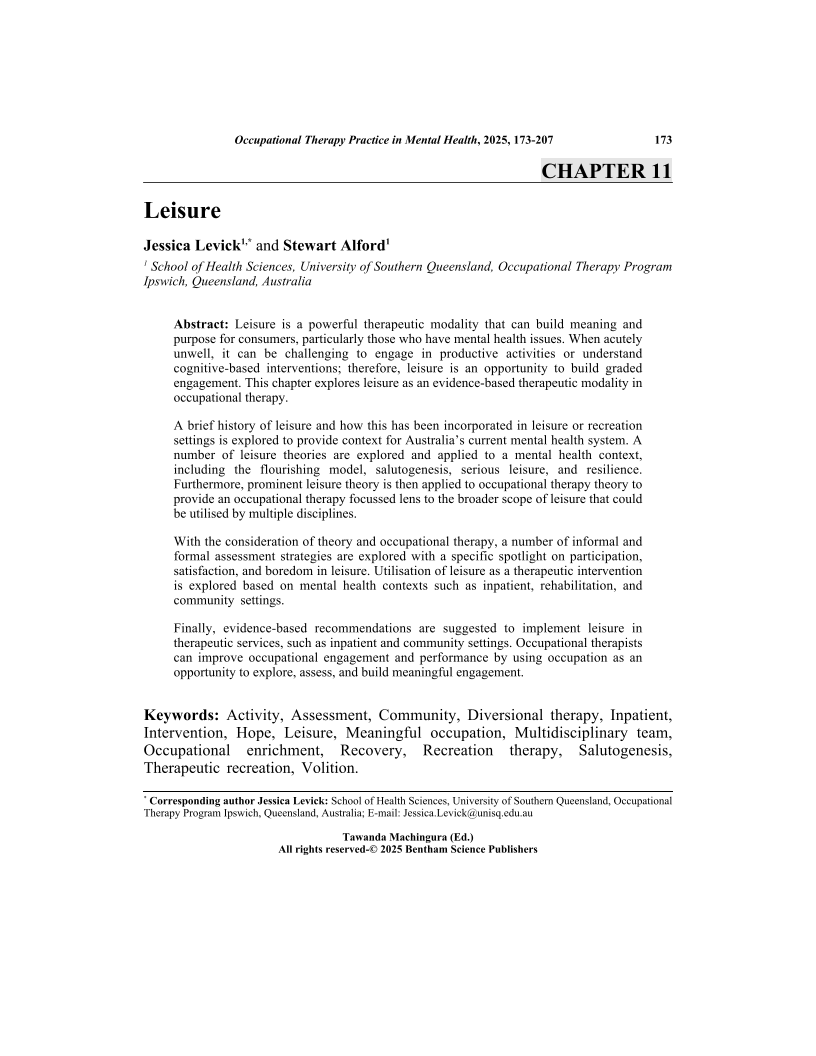Leisure

- Authors: Jessica Levick1, Stewart Alford2
-
View Affiliations Hide Affiliations1 School of Health Sciences, University of Southern Queensland, Occupational Therapy Program Ipswich, Queensland, Australia 2 School of Health Sciences, University of Southern Queensland, Occupational Therapy Program Ipswich, Queensland, Australia
- Source: Occupational Therapy Practice in Mental Health: Models, Conditions, Interventions, and Recovery , pp 173-207
- Publication Date: October 2025
- Language: English
Leisure, Page 1 of 1
< Previous page | Next page > /docserver/preview/fulltext/9789815313710/chapter-11-1.gif
Leisure is a powerful therapeutic modality that can build meaning and purpose for consumers, particularly those who have mental health issues. When acutely unwell, it can be challenging to engage in productive activities or understand cognitive-based interventions; therefore, leisure is an opportunity to build graded engagement. This chapter explores leisure as an evidence-based therapeutic modality in occupational therapy. A brief history of leisure and how this has been incorporated in leisure or recreation settings is explored to provide context for Australia's current mental health system. A number of leisure theories are explored and applied to a mental health context, including the flourishing model, salutogenesis, serious leisure, and resilience. Furthermore, prominent leisure theory is then applied to occupational therapy theory to provide an occupational therapy focussed lens to the broader scope of leisure that could be utilised by multiple disciplines. With the consideration of theory and occupational therapy, a number of informal and formal assessment strategies are explored with a specific spotlight on participation, satisfaction, and boredom in leisure. Utilisation of leisure as a therapeutic intervention is explored based on mental health contexts such as inpatient, rehabilitation, and community settings. Finally, evidence-based recommendations are suggested to implement leisure in therapeutic services, such as inpatient and community settings. Occupational therapists can improve occupational engagement and performance by using occupation as an opportunity to explore, assess, and build meaningful engagement.
-
From This Site
/content/books/9789815313710.chapter-11dcterms_subject,pub_keyword-contentType:Journal -contentType:Figure -contentType:Table -contentType:SupplementaryData105

